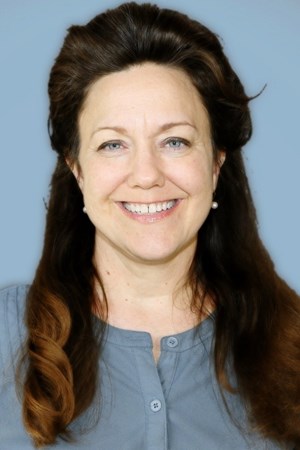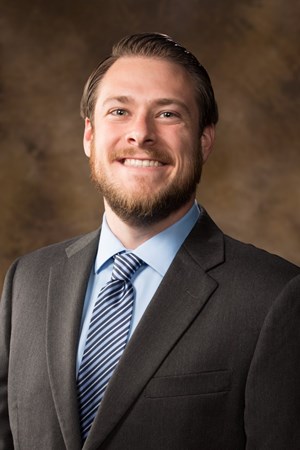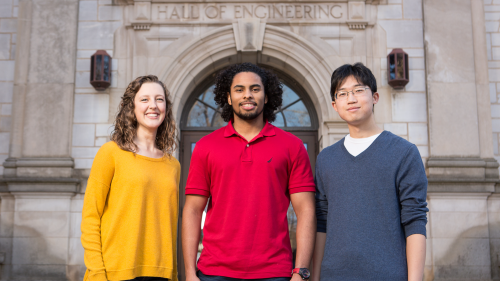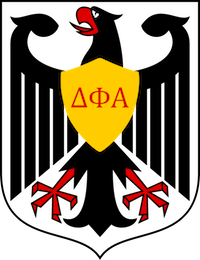German

Our German program offers solid career opportunities, and we encourage our students to not only study abroad but also work and research abroad. The International Engineering Program allows students to earn both a BS in engineering and a BA in German in just five years, spending their fourth year abroad studying abroad and working at a German company.
In addition to traditional courses on German language and literature, we teach innovative courses aligned with faculty research that allow students to explore individual topics in greater detail such as: the German Graphic Novel, Professional German, German Cinema, Migration and National Identity, and Germany and the Holocaust: The Significance of the Holocaust in Differentiated Contexts.
How is German important today?
German is the most widely spoken language in Europe, and Germany has a long history as a high tech center that continues today. The nation is a leader in multiple fields of business and STEM, such as the automotive, biotechnology, alternative energy, pharmaceuticals, and computer science sectors, and the German economy drives the European Union.
German additionally gives you access to the rich, world-renowned cultural achievements of the German-speaking countries—contributions by names such as Mozart, Bach, Beethoven, Klimt, Goethe, Kafka, Marx, Nietzsche, and Freud are among those you might recognize. German Americans are the largest heritage group in the US. Kindergarten, Christmas trees, and Levi jeans were all introduced by German-Americans.
Meet our German instructors and TAs in our departmental directory.

 Kathleen Condray - Professor of German
Kathleen Condray - Professor of German
- Associate Professor of German, Director of Jewish Studies
 Brett Sterling - Section Head, Associate Professor of German
Brett Sterling - Section Head, Associate Professor of German
Unique Aspects of our German Program

The International Engineering Program (IEP) gives students the opportunity to earn two degrees in five years—a BS in engineering and a BA in German. It is open to students in all fields of engineering. Students spend their fourth year studying abroad for a semester at the Technische Universität Darmstadt (Technical University of Darmstadt) followed by a paid internship with a German company. Interested students should review this page on the College of Engineering website for more information and application instructions.
Professional & Academic Opportunities for German Speakers
Interested in studying German at the U of A?
Are you continuing your investment in learning German after starting in high school?
We do not offer a placement exam, since we’ve found that an hour exam is insufficient to capture what students have learned over years. The general rule of thumb is one year of high school is equal to one semester of college German. So, if you’ve had:
- one year of high school German, start in GERM 1013 (Elementary II).
- two years of high school German, start in GERM 2003 (Intermediate I).
- three years of high school German, start in GERM 2013 (Intermediate II).
- four or more years of high school German, start in GERM 3003 (Advanced I).
You can earn free retroactive credit by starting at a higher level than GERM 1003 (Elementary I), as long as you earn a C or better in the class. This is called Credit by Achievement. If you take GERM 3003, you could take one course for three hours and potentially earn fifteen hours (because you would get credit for 3003, as well as the courses you skipped over: 2013, 2003, 1013, and 1003).
However, we understand that language learning during the pandemic was sometimes less than optimal, and these are guidelines—you are welcome to start at a lower level if you feel more comfortable with a review starting out, and if you’re just not sure, please send an email to condray@uark.edu to discuss which level is best for you.
Are you new to learning German?
The place for you to start is GERM 1003 (Elementary German I). This is the course for true beginners, starting with the alphabet. We’ll give you a solid foundation in the basics that will help you build your linguistic skills in reading, writing, speaking, and listening as you move forward.
Have questions / need an override / want to chat?
Contact the undergraduate advisor, Dr. Kathleen Condray, at condray@uark.edu. If you have questions about which level you should take, Dr. Condray is happy to meet via Zoom over the summer—please do not hesitate to reach out! Send an email with your availability to set up an appointment. Once the semester starts, Dr. Condray is available in office hours to talk about study + work abroad, career opportunities, and all things German. Appointments can also be made for those who have class during office hours.

 Jennifer Hoyer
Jennifer Hoyer